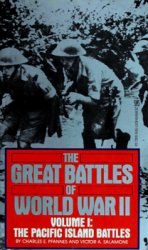The Fair Deal was Harry S. Truman’s domestic policy agenda calling for civil rights legislation, national health insurance, and other programs aimed at improving American society.
In his State of the Union address on January 15, 1949, Truman announced his domestic agenda for the next four years. “Every segment of our population and every individual,” Truman proclaimed, “has a right to expect from our government a Fair Deal.” The president outlined an expansion of many of Franklin D. Roosevelt’s New Deal policies into a series of programs that came to be known as the Fair Deal. Only a few planks of this ambitious agenda, however, passed through a hostile Congress to become legislation.
Truman proposed the Fair Deal at the height of his presidential career. His victory in the closely contested election of 1948 over Thomas E. Dewey signaled Truman’s emergence from the shadow cast by his predecessor. Truman had earned his victory by holding together the New Deal coalition of farmers, union members, and urban ethnic voters. On the strength of this election success, the president proposed an ambitious domestic agenda that carried through his 1948 campaign promises and expanded many New Deal programs. The Fair Deal called for broader social security coverage; an increase in the minimum wage; a repeal of the antiunion Taft-Hartley Act; the development of power programs modeled after the Tennessee Valley Authority (such as the Columbia Valley Administration); an expanded federal housing program; federal aid to education; and a national health insurance program. Truman later added several civil rights measures to his Fair Deal proposals, including a federal antilynching law and the establishment of a permanent Fair Employment Practices Committee (FEPC) to regulate racial discrimination in the workplace.
From the start, the Truman administration faced several obstacles in enacting the Fair Deal. Although the
Democratic Party enjoyed a majority in both houses of Congress, a coalition of Republicans and conservative southern Democrats held control of the legislative process and successfully prevented passage of most Fair Deal programs. Truman needed the support of the southern Democrats to achieve his foreign policy objectives in the cold war, and he was unwilling to risk these goals to push his domestic agenda. Perhaps most significantly, Truman proposed the Fair Deal just as the country was becoming more conservative and pulling back from the commitment to reform that had marked the 1930s.
These obstacles scuttled most Fair Deal legislation. For example, Truman had called for a national health insurance system that relied for funding on federal payments in combination with employee and employer contributions. The American Medical Association and the American Hospital Association, worried about a decrease in doctors’ income, denounced the plan as “socialized medicine.” Truman settled instead for a more conservative bill that funded the construction of new hospitals. Fair Deal plans for federal coordination of hydroelectric power in the Pacific Northwest stalled in Congress, as did Truman’s proposals for federal aid to education and his attempt to repeal the Taft-Hartley Act (which limited unions’ powers to conduct boycotts and enforce closed shops, where employees had to join unions before getting jobs).
Truman’s civil rights initiatives had little chance of succeeding in a Congress controlled by conservative southern Democrats who opposed any action that threatened segregation. Although a weak FEPC bill did pass the House, the president agreed to hold off on a Senate vote on the bill in return for congressional support for his foreign aid policies. Stalled in Congress, Truman used executive orders to advance his civil rights initiatives, such as the appointment of African Americans to mid-level government posts and judiciary positions and the denial of federal contracts to firms that practiced racial discrimination.
Despite these setbacks, Truman did succeed in passing some parts of the Fair Deal agenda. Most of these successes, however, came in packages scaled down from the original proposals. The Social Security Act of 1950 increased the level of benefits in the social security program, and extended coverage to more than 10 million people, including agricultural workers (Truman had asked for an extension to 25 million workers). The National Housing Act of 1949 authorized the construction of 810,000 federal housing units (down from Truman’s request for over 1 million). The administration also secured a raise in the minimum wage from 40 to 75 cents an hour.
The failure of most Fair Deal legislation is not surprising. Despite its lack of success, however, the Fair Deal remains important. Truman’s vision of a “Fair Deal”— especially in housing, education, and civil rights—set the stage for debates over domestic reform for the next several decades.
Further reading: Robert J. Donovan, The Tu-multuous Years: The Presidency of Harry S. Trwman, 1949-1953 (New York: W. W. Norton, 1982); Gary W. Reichard, Politics as Usual: The Age of Truman and Eisenhower (Arlington Heights, 1ll.: Harlan Davidson, 1988).
—Jim Feldman




 World History
World History









